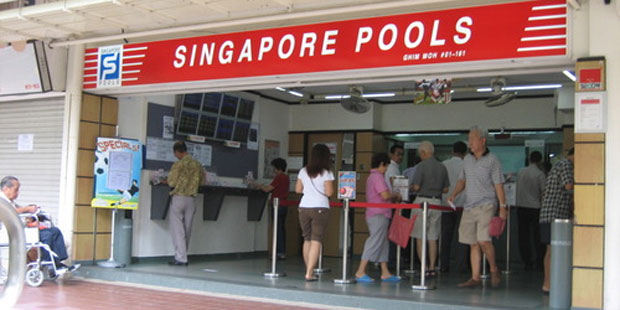As announced, it will cost an ungodly $112 to watch this year's 64 World Cup matches after SingTel was awarded the exclusive broadcast rights to the tournament.
Unfortunately, this is approximately $112 too much to pay for watching football.
Why? Because everyone in Singapore should have the right to watch the biggest football event for free. Like the people of Norway, China and Thailand who don't need to pay a cent.
Here are 5 factors that will lead everyone to nod sagely and conclude that surely, Singapore Pools -- as the only legal lottery operator set up by the government -- owed it to everyone to make the World Cup 2014 free:
1. No one can count on MediaCorp anymore as they are broke have budget restrictions
Football broadcast rights in Singapore have been fought over between two pay-TV operators: SingTel and StarHub.
This has resulted in prices to watch the English Premier League skyrocketing. And this effect is carried over to the World Cup tournament.
And the one way to reduce cost was for national broadcaster MediaCorp to submit a joint bid with SingTel and StarHub for this year's World Cup 2014 rights.
But the last time MediaCorp made a bid was for France 1998. They have sat out ever since.
Furthermore, if no one has been paying for television license since that scheme got scrapped in 2011, MediaCorp is even more broke now.
2. SingTel spurned StarHub to clinch the exclusive rights to the World Cup
SingTel announced sneakily on March 12 it had sealed the exclusive deal with Fifa to broadcast World Cup matches.
That came out of nowhere. And that was really uncalled for.
If we recall: In 2010, SingTel and StarHub almost couldn't finalise negotiations with Fifa.
They were cutting it really close and both paid-TV operators were trying to meet Fifa's asking price of $40 million to $100 million just 35 days before the World Cup kicked off.
But with so much ample time this year before the World Cup officially starts, SingTel did not work with StarHub and instead made the bid by itself.

3. SingTel made it known they could pay through their nose
And here's the worst part: In 2009, SingTel single-handedly made a $400 million bid for the 2010 to 2012 EPL seasons -- about 10 percent more than the rest of the world.
This caught World Cup rights holder Fifa's attention. They figured they could wring money out of SingTel since they were inclined to fork out so much.
That just served to add to the cost passed on to customers.
4. SingTel's exclusive bid for the World Cup was, therefore, to sell more EPL subscriptions and profit from more viewers
By securing the World Cup rights, SingTel used it as part of their promotional marketing ploy to sell subscription to their pay-TV.
The World Cup comes free for those signing up for or extending their existing EPL contracts with SingTel for two years.
Currently, SingTel's basic EPL package is already overpriced: $59.90 a month, or more than $1,400 over two years.
The World Cup 2014 has become a marketing bait.
5. Less than transparent process to secure World Cup rights
World Cup rights are sold through Fifa agents. Hence, prices are customised according to what they think a market can afford.
It is not known how much SingTel paid for this year's World Cup rights.
But a good guess will be between $20 million and $25 million.
This is because Starhub and SingTel paid $20 million combined in their 2010 joint bid for the World Cup rights.
And this figure is probably so high because SingTel kept giving signals they their pay-TV customers can afford it.
Therefore..
There are only two other institutions in Singapore -- with social obligations -- that could have possibly secured the rights to World Cup 2014: The government or Singapore Pools.
The government could have used taxpayers' money to pay for the World Cup rights, but that might offend the sensibilities of some quarters, who feel that money should be spent on building hospitals and redistributing it to the poor as handouts.
Okay, point taken.
So, that leaves Singapore Pools.
This is because Singapore Pools accrues all the benefits from the betting public, which amounts to billions of dollars a year that are not taxes -- and it automatically has a societal obligation to pay it forward, because, hey, it's dirty money, anyways.
But because they didn't bother to pay it forward, the public is left with only four matches that have been made free: The opening, semi-finals and finals.
If you like what you read, follow us on Facebook, Instagram, Twitter and Telegram to get the latest updates.
